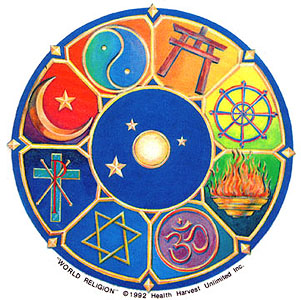Citizens of the United States might be among the most religious of the developed world, but when it comes to knowing about religions, U.S. atheists score higher than U.S. Christians. This is one of the results shown by a survey from the Pew Research Center’s Forum on Religion & Public Life, which was released Tuesday.
The survey asked 32 questions about religion — such as what religion was Mother Teresa, where Jesus was born, what religion are most inhabitants of Indonesia, and if the Dalai Lama is Buddhist. Catholics averaged the lowest score, getting 14.7 correct, below the national average of 16 out of 32 correct answers. Atheists and agnostics averaged 20.9 correct answers. Jews averaged 20.5; Mormons 20.3; and Protestants 16.
Atheists/agnostics and Jews had high scores regarding questions about religion and public life, including what the U.S. Constitution says about religion. About 45% of U.S. Catholics surveyed were unable to recognize Church teaching on the Real Presence of Christ in the Eucharist. The Bible is a strong-point for U.S. citizens, though Mormons are those who scored best in this line of questions. According to the executive summary of the survey, most Americans were able to answer correctly at least half of the survey’s Bible questions.
“For example, roughly seven in 10 (71%) know that, according to the Bible, Jesus was born in Bethlehem. More than six in 10 (63%) correctly name Genesis as the first book of the Bible. And more than half know that the Golden Rule — ‘Do unto others as you would have them do unto you’ — is not one of the Ten Commandments.
“On the full battery of seven questions about the Bible — five Old Testament and two New Testament items — Mormons do best, followed by white evangelical Protestants. Atheists/agnostics, black Protestants and Jews come next, all exhibiting greater knowledge of the Bible than white mainline Protestants and white Catholics, who in turn outscore those who describe their religion as nothing in particular.”
WASHINGTON, D.C., SEPT. 29, 2010 (Zenit.org)





